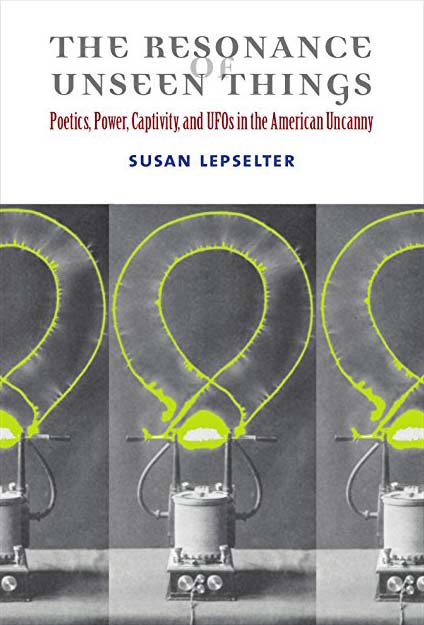It is not cold
It is not hot
where I came from
and yet I don’t know exactly where.
My planet is gone. That’s why I’m here on Earth.
These lines have the feeling of poetry or song. Yet they are the testimony of a woman interviewed by IU associate anthropology professor Susan Lepselter for her book The Resonance of Unseen Things: Poetics, Power, Captivity, and UFOs in the American Uncanny (University of Michigan Press, 2016). Although it is her first book, it earned the annual Gregory Bateson Prize from the Society for Cultural Anthropology last fall. Academic colleagues have been equally laudatory. As a reviewer in American Ethnologist put it, Lepselter’s book “is as extraordinary as its subject matter. There is nothing like it, even among the most experimental of ethnographies.”

“I feel like I won one for the team,” says Lepselter, who is among a wave of scholars who are challenging ethnographic conventions. Indeed, her subjects—UFO believers—do seem far removed from the Amazonian rainforest tribes that anthropologists stereotypically study. Lepselter conducted her fieldwork among a support group for UFO survivors in an anonymous Southern city, as well as at Area 51, the top-secret Air Force base in the Nevada desert that is a popular destination for “UFO tourism,” as Lepselter calls it, because it has long been rumored that the U.S. government conceals aliens there.
Lepselter’s writing style is equally unconventional: her book feels by turns not only poetic but also journalistic and novelistic. The book’s tone and style are not surprising, because Lepselter majored in English as an undergraduate and was a freelance writer before attending grad school. She says she was reading Denis Johnson, Alice Munro, and Wallace Stevens as she wrote. Lepselter recently took an MFA-level poetry workshop at IU: “It’s good for my scholarly writing,” she explains, adding, “because my background is literature, in all my classes too, I use a lot of fiction and film.”
UFO survivors, bravery, and meaning-making
A perennial topic for sensationalistic tabloids and sci-fi thrillers, UFOs and the people who believe in them are undeniably intriguing. Lepselter has only the deepest respect for her subjects. “I felt a huge connection to the people I was writing about,” she says. “I felt they had an intense intellectual drive. They were drawn toward meaning-making in a way that I found very resonant. For me, the question ‘what is real?’ is a very animating question. These people were brave enough to face this question head on. The idea that the real is a co-production of what you make and what’s really out there is fascinating to me.”
Following the revered anthropological technique of participant observation, Lepselter fully took part in the UFO support group. “Although I had never been abducted by UFOs, I could draw on the kind of uncanny, weird experiences that all of us have,” she says. And to collect stories in Nevada, she worked as a waitress at the famous Little Ale’Le’Inn, a choice she ardently defends: “Society tends not to notice or value the expressions of people outside established art or intellectual institutions. People who might be treated as ‘just’ a waitress are never just waitresses. Everybody is creative, everybody has an inner life, and everybody is trying to make sense of their inner life.”

Intellectual openness
Lepselter’s intellectual openness translates into a deep interest in interdisciplinary studies. She joined IU in 2007 with a joint appointment in American Studies and Communication and Culture after earning her Ph.D. in folklore and social anthropology at the University of Texas in Austin. “I’m really grateful to IU for providing these opportunities to think in interdisciplinary ways,” she says.
She continues to range widely. Her recent work has examined young women who have been diagnosed with ADHD, autism, or dyspraxia. Through online communities, they are claiming a new identity as neurodiverse, in distinction to the unmarked “neurotypical" privilege in society. “It is my way of trying to understand the creativity in a stigmatized, marginalized experience, ” she says, just as she did with the UFO believers.
Everybody is creative, everybody has an inner life, and everybody is trying to make sense of their inner life.


